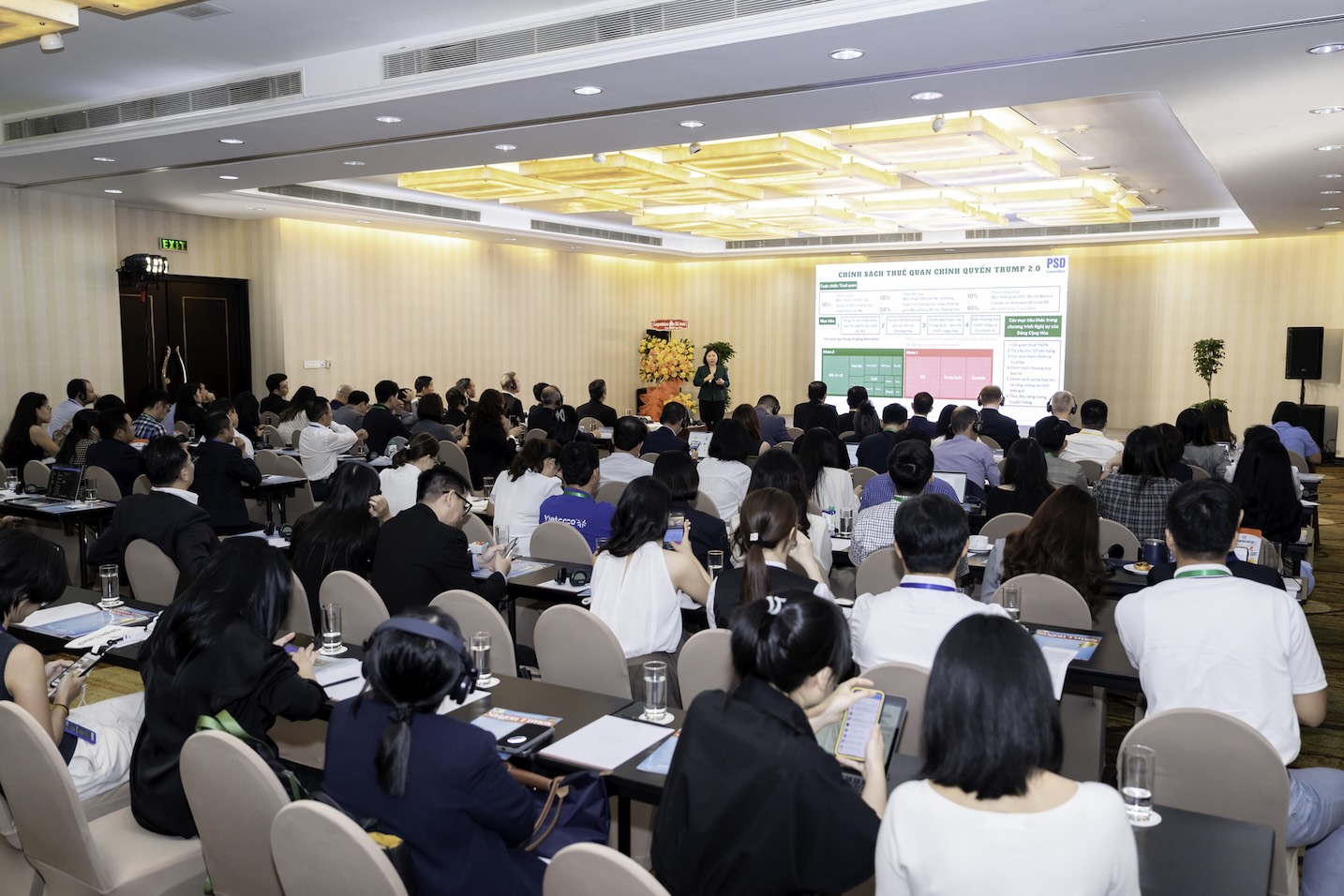Environmental, social, and governance (ESG) issues took center stage at a forum organized last week by The Saigon Times and Green Transition Consulting & Training. Attendees recognized that ESG is not confined to global frameworks but is reflected in everyday choices, from modes of transport to the use of sustainable materials.
As the world grapples with the growing threat of climate change, businesses are increasingly turning to environmental, social, and governance (ESG) principles as a cornerstone of sustainable development. For many, ESG still conjures images of sweeping strategies, global commitments, and data-driven reports. Yet, at the ESG Forum 2025 held in HCMC on June 15, a different perspective emerged. Participants were reminded that ESG is not limited to grand ambitions or policy documents; it also lives in the small, everyday choices we make. From how attendees traveled to the venue to the organizers’ efforts to eliminate single-use plastics, the forum underscored that ESG begins with intentional, practical actions.
ESG addresses global challenges
At the forum, Pham Thi Ngoc Thuy, director at the Office of the Research and Development Board for the Private Economic Sector (Board IV), said that ESG is a globally shaped policy agenda, largely driven by major economies. ESG standards vary across countries and regions. In the U.S., sharp divisions between federal and state governments complicate ESG alignment, while the European Union maintains a unified approach to sustainable development. Japan, meanwhile, stands out as a model and regional frontrunner in ESG practices across Asia.
Vietnam cannot remain on the sidelines of this global trend. For Vietnamese businesses, this makes early engagement with ESG – through awareness, training, and implementation – not just advisable but essential. It is crucial for companies to proactively understand the ESG-related policies and requirements of the countries and territories they do business with. Regardless of the market, aligning with ESG principles offers businesses a clear competitive advantage in today’s increasingly sustainability-driven economy.
Businesses are coming to understand that ESG is not a passing trend, but a global trajectory that cannot be reversed. Regulations will only grow tighter, driven by leadership from the EU, the U.S., and other advanced economies. For Vietnamese enterprises, this is the moment to move beyond a reactive stance and embrace ESG compliance voluntarily and strategically. In doing so and doing it well, Vietnam has the potential to emerge as a regional benchmark for green manufacturing, not just in Southeast Asia but across the wider Asian region.
Yet ESG is also part of everyday life
As a law firm, we are well aware of the global scope of ESG and its growing impact on Vietnam’s manufacturing sector. Concepts like green manufacturing, building sustainable supply chains, and using eco-friendly materials are part of our regular conversations with clients.
Yet the ESG Forum offered us a new perspective that ESG is not only about large-scale strategies or regulatory frameworks; it also appears in everyday choices. One simple example was a short survey conducted by the organizers, asking attendees how they traveled to the event. It prompted us to reflect on our own commuting routines, and how they, too, are part of practicing ESG. Choosing low-emission or green transport options is a concrete way to reduce carbon emissions, one of the fundamental objectives under the Environmental pillar of ESG.
One particularly striking detail was the organizers’ decision to provide a safety briefing on emergency exits before the event began – something surprisingly rare at events in Vietnam. Although we have attended and even organized many events ourselves, this was the first time we witnessed such a practice locally. This small gesture left a strong impression, raising awareness among many of us about the importance of safety compliance at public gatherings. And indeed, this too is part of ESG.
Returning to our office, we have begun to rethink how small, everyday choices can contribute to a deeper understanding of ESG among our team. Single-use plastics like disposable cups, straws, and bottled water have been replaced with glassware and reusable personal containers. Employees are encouraged to bring their own items, and sorting and reusing office supplies has become a standard, company-wide practice. We believe that even the most ambitious goals begin with simple, intentional actions.
ESG is more than just a business strategy
If businesses regard ESG merely as a reporting requirement, a tool to appease shareholders and customers, or simply another business tactic, then compliance risks becoming a burdensome obligation. In such cases, once external pressure subsides – whether from partners or the market – the commitment to ESG may wane. However, if ESG is embedded as a core part of a company’s identity and day-to-day operations, it can become a lasting source of value. When ESG is lived as a business ethos rather than performed as a checklist, it strengthens brand reputation and builds enduring trust with customers and partners.
In its early days in Vietnam, ESG was largely seen as a compliance requirement – something businesses had to adopt in order to trade with international partners. It was often viewed as a costly obligation. But we believe that, over time, with the collective support of the Government, organizations, and industry associations, ESG will evolve beyond a mandatory business strategy. It will become a way of thinking – a mindset and lifestyle embedded in every aspect of business operations. As one of the panelists at the ESG Forum 2025 put it: “We live in the environment, so we must protect it.”
(*) HM&P Law Firm









